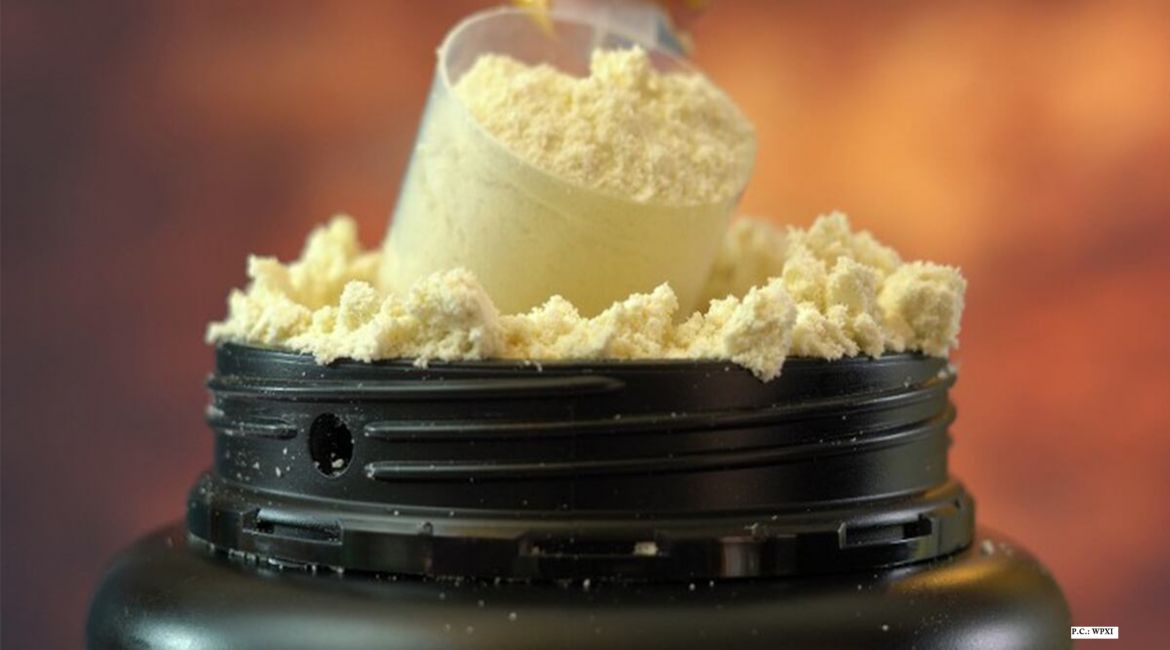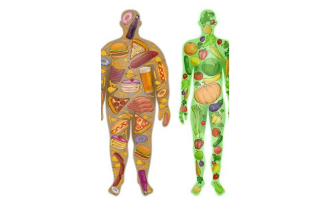Protein powder: What is it? | Is protein powder essential for good health? | Important points to consider before making a purchase

|
In this article Limiting amino acids (AA) in the plant foods Is protein powder essential to be healthy? Know before using protein powder
|
Protein is one of the most important macronutrients for our bodies. It is essential for healthy growth and development. People can obtain protein from dietary sources or supplements. Those who require extra protein or cannot get enough from their diet should consider protein supplements.
Today, many children, parents, and individuals who go to the gym or want to maintain a healthy lifestyle believe that protein powder is the best way to meet protein requirements and support growth and development. But is this true? In this article, I will briefly explain the topic.
Before we discuss protein powder, we need to understand the importance of protein in our body.
Why protein is essential?
Proteins are composed of building blocks known as amino acids. Our body requires 20 different amino acids for protein synthesis, and these amino acids are linked together in various combinations. There are thousands of proteins in the body, each performing a specific function. Each protein molecule is structurally and functionally distinct due to the unique arrangements of amino acids.
Proteins play a vital role in numerous bodily functions, including the growth of new tissues, tissue repair, the transport and storage of nutrients, communication between cells, and overall nutrition.
Out of the 20 amino acids, there are 9 essential amino acids (EAAs) that the body cannot synthesize independently. Therefore, it is important to include protein-rich foods in our diet to ensure that we obtain these essential amino acids for the body to function effectively.
Protein requirement:
According to ICMR - National Institute of Nutrition, the Recommended Dietary allowance for protein is 0.83g/kg/day for healthy men or women.
Sources of protein:
There are nine essential amino acids (EAAs) that we must obtain from our diet since our bodies cannot synthesize them. Consuming high-quality protein is vital for building muscle mass and supporting healthy growth and development. A high-quality protein source contains a total of 20 amino acids, including the nine essential ones.
Non-vegetarians can easily meet their high-quality protein needs by combining cereals, pulses, nuts, and animal protein sources such as meat, fish, eggs, and poultry.
In the case of a vegetarian diet, the correct combination of cereals, pulses, dairy products, nuts, and seeds, are essential to meet the requirements of good quality proteins.
Limiting amino acids (AA) in the plant foods
|
Food items |
Limiting essential amino acids |
Compliment with other foods to obtain the limiting AA |
|
Grains (Cereal, millets) |
Lysine, Threonine, Tryptophan |
Pulses, chickpeas, and beans which are rich in lysine, threonine, tryptophan |
|
Pulses |
Methionine |
Cereal, millet, nuts, and seeds are rich in methionine |
|
Nuts/seeds |
Lysine |
Pulses, chickpeas, and beans which are rich in lysine |
Source: ICMR-National Institute of Nutrition
What is protein powder?
Protein powder is the powdered form of protein. It is made from various sources, such as egg, milk (casein and whey protein), and plant sources (Soyabean, peas, hemp, or rice).
Whey protein is very common in the form of protein powder. Whey protein is a purified form of protein. One scoop of whey protein powder contains 20-27 grams of protein. The main advantage of this protein powder is it contains all 9 essential amino acids.
Benefits of protein powder:
Weight management:
Protein plays a crucial role in weight management. Protein powder, particularly whey protein, is a popular choice among athletes, bodybuilders, and those looking to manage their weight in the form of a healthy drink.
Research involving 158 participants (1) found that those who consumed whey protein lost body fat significantly and managed to preserve lean muscle mass better than those who were given a control beverage.
Additionally, protein powder can help people feel fuller for a longer period, which aids in reducing frequent snacking and managing portion sizes. This makes it potentially beneficial for individuals aiming to lose weight.
On the other hand, for those who are underweight, incorporating protein powder into their diet may assist in gaining weight.
Muscle growth:
Protein is essential for muscle growth and development. Many weightlifters and bodybuilders consume protein powder or supplements to enhance their muscle mass.
A review published in the British Journal of Sports Medicine analyzed data from 49 studies and found that taking protein supplements helps to improve muscle strength and size in healthy adults who engaged in resistance training, such as weightlifting, over a certain period.
Prevent muscle loss:
As people age, protein deficiency becomes very common. Many older individuals struggle to eat properly due to various factors related to aging, leading to nutritional deficiencies. In addition, reduced physical activity contributes to muscle loss. The decline in muscle mass often leads to injuries and increases the risk of diabetes, stroke, and heart attacks, which are common issues in older adults. Protein powder supplements may help prevent muscle loss and promote overall health in this age group.
Individuals who follow a vegan or vegetarian diet, or have dietary restrictions, may choose to take protein powder as per their requirement.
Is protein powder essential to be healthy?
Protein powder serves as a supplemental option for meeting protein needs. Most people can easily fulfil their protein requirements through their regular diet. However, individuals who follow a vegan or vegetarian diet may encounter challenges in obtaining high-quality protein. By focusing on the right combinations of foods, it is possible to meet these protein demands effectively.
According to the recent guidelines from the ICMR-National Institute of Nutrition, a high intake of protein, including protein supplement powders, is not recommended. Consuming excessive amounts of protein may lead to bone mineral loss. It is always advisable to maintain a balanced diet that includes high-quality protein sources instead of relying on a single nutritional supplement.
For individuals with certain kidney diseases, consuming a high amount of protein regularly can potentially harm kidney function or lead to kidney failure. Therefore, it is always advisable to consult with a healthcare professional about your protein needs, especially if you have any kidney-related issues.
Know before using protein powder:
-
The safety and quality evaluation of protein powder is not regulated by the FDA (Food and Drug Administration); it is instead controlled by the manufacturers. As a result, there is no way to confirm if a protein powder contains what the manufacturers claim. It is advisable to verify the certification levels from reputable third-party organizations.
-
The side effects of consuming too much protein powder are unknown. Therefore, it is essential to calculate your protein requirements and stay on track.
-
Read the label carefully. If you want to avoid specific ingredients in a product, the ingredient list provides that information. Many people are vegan, vegetarian, or have allergies, so it’s important to read the label before use.
-
Individuals with a milk allergy or lactose intolerance may experience digestive issues when consuming milk-based protein powder. It is advisable to consult an expert and follow their instructions.
-
Before making a purchase, it's important to check the sugar content and other ingredients in protein powders. Many products on the market contain high levels of sugar and additives to enhance flavour. A 2018 investigation by the Clean Label Project found that 53 leading brands had concerning levels of heavy metals and BPA. This study revealed that many protein powders either contained unlisted ingredients or exhibited dangerous levels of substances that were listed on their labels.
Bottom line:
It is best to use protein powder as a supplement rather than as a meal replacement. A balanced diet is essential for good health, and it's important to obtain all the necessary nutrients, including protein, from whole foods. If you replace your meals with protein supplements, you may deprive your body of essential vitamins and minerals.
Protein powder is not necessary for everyone; however, consuming the right amount and quality of protein is essential for all. To determine how much protein you need, calculate your requirements and choose appropriate food options, including protein powder if needed. If you can meet your protein needs through whole foods, it can also be more economical.












0 Comments